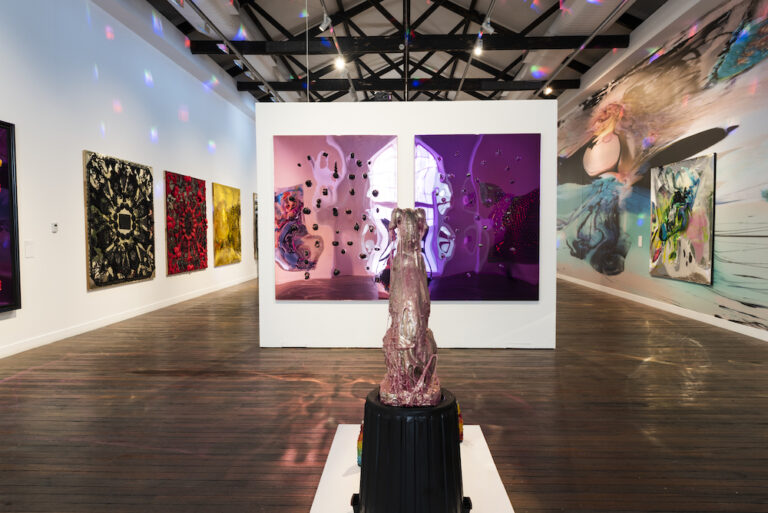
Transgender victims of violence remembered

BY RYAN QUINN
The transgender community came together last week to mark Transgender Remembrance Day, acknowledging those who had suffered ‘transphobia’ in society.
Over 60 transgender and LGBTIQ supporters gathered at the Newtown Neighbourhood Centre on November 20 to mark the day.
Transgender Remembrance Day is an annual international event to mourn those who have died or experienced violence as a result of discrimination or ‘transphobia’, and to fight for those still living with these issues in the community today.
The transgender community has called the issue of domestic violence “another closet” in their lives, as the rates of violence are disproportionately higher for gransgender, gender diverse and intersex people.
Master of Ceremonies of the event and board member of The Gender Centre, Eloise Brook, said that the transgender community was united by an all too frequent experience of harassment.
“Tonight we are here to remember those deaths which cannot be celebrated, because they can only be mourned,” Ms Brook said on the night.
“Those deaths which cannot be understood, because they can only be railed against; those deaths which cannot be believed, because they keep happening over and over again in the same lamentable way,” she continued.
Detective Superintendent Tony Crandell spoke on the night as the corporate sponsor for sexuality, sex and gender diversity for NSW Police Force.
His work includes facilitating collaboration between the LGBTIQ communities and NSW Police.
“The smallest thing that can be said by a police officer can really hurt and undo a whole hell of a lot of good work that’s otherwise done in the transgender community,” he said.
According to the Detective Superintendent, police response to the LGBTIQ community can prevent these people from reporting abuse. He told City Hub he wanted officers to become more accessible.
He told the audience that eradicating intolerance and poor understanding must start with education.
He said that each student in the NSW Police Academy was now informed on gender variance and potential barriers to reporting violence.
“Those delivering stories of transition and difficulties with family and community acceptance have come from the transgender community, from people with the most fantastic courage and humility which affect and impact upon police recruits,” he said at the event.
Detective Superintendent Crandell said he understands that he could not change a person’s core beliefs, but felt it was easier to adjust principles that failed to align with the police force’s transgender policy at a recruitment level.
NSW Police Force also celebrated the 25 year anniversary of its Gay and Lesbian Liaison Officers (GLLO) program earlier this year.
Detective Superintendent Grandell told City Hub that the GLLO badge signified that the person had been trained to “understand the differences, the challenges and the behaviours that are required to address the issues” within the transgender community.
A GLLO Conference held last month at the NSW Police Academy heard that of the 73 gender diverse young people in a 2014 survey, 69 per cent had experienced verbal abuse and 22 per cent had experienced physical abuse.
It was also found that 44 per cent had experienced other forms of homophobia and transphobia.
Most recently, a 2015 survey of 3,835 LGBTIQ Australians found that 55.3 per cent of trans-males and 49.2 per cent of trans-females had reported abuse.
Greens Newtown MP Jenny Leong, who attended the event, told City Hub that it was clear that there needed to be transgender law reform.
Australian Human Rights Commission (AHRC) Advisor Laura Sweeney spoke of the major first step in this direction, with the 2013 amendment to the Sex Discrimination Act 1984.
“What we saw was the introduction of legislation which for the first time at the federal level made it unlawful to discriminate on the basis of a person’s sexual orientation, gender identity or intersex status,” she told the audience. However, Ms Sweeny conceded that the law was not simply a “silver bullet” for issues in the transgender community.
LGBTIQ people still currently hit barriers surrounding access to health care and changing identification documents, according to Ms Sweeny.
The AHRC has outlined a ‘road map for inclusion’ to address these issues, which claimed that LGBTIQ discrimination is “state-sanctioned” and that “governments have had a leading role in creating this culture, and so must also take a lead role in undoing it”.
Ms Sweeny said the roadmap called on all states and territories to simplify the changing of gender status on legal records, and proposed a policy scheme across the entire health system to clean up bureaucratic barriers for the transgender community access to health care.
The Transgender Remembrance Day function was co-organised by student George Fayad and The Gender Centre, which offers services to transgender and gender diverse people in NSW and is based in Annandale.
Since last year’s event, The Gender Centre has also established a transgender anti-violence program, a rural service and an aged care program.
Seven NSW Police Officers also attended the event, including presenter Sergeant Valerie Wagstaff, the first openly transgender NSW Police Officer.









